
Beyond the Tea Sourcing Trips – Why Terroir Matters, An Interview with Victoria Wu (Part 2)
- Continued from Part 1
Derek: You said that you wanted to be able to provide your teas are of the highest quality. Is this why you decided that you would annually visit China and directly source your teas when you started MeiMei Fine Teas?
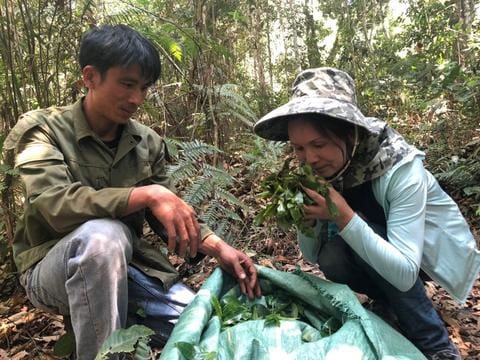
Victoria: Obviously, it would be much easier to go through a wholesaler or order teas through some other easy means, but I was determined from the beginning to discover first-hand where some of the most famous teas in the world are produced. I really wanted to see the original, core-producing areas for myself. Moreover, I even wanted to see where in these original areas the tea is said to grow best and how it is produced. Just as people might want to visit California or France to better understand why some their wines are so popular and so highly regarded , I wanted to see the places that gave these teas their reputations and learn why.
Direct sourcing also helps me ensure quality in the process. As I said, I can physically witness the tea production from start to finish. Since I am very serious about providing my customers an opportunity to taste the world’s best tea, to have a true tea experience, being there helps me guarantee that what I have sourced is authentic and good. I know what it tastes like, what it looks like, and where it comes from, and I can share this experience with my customers.
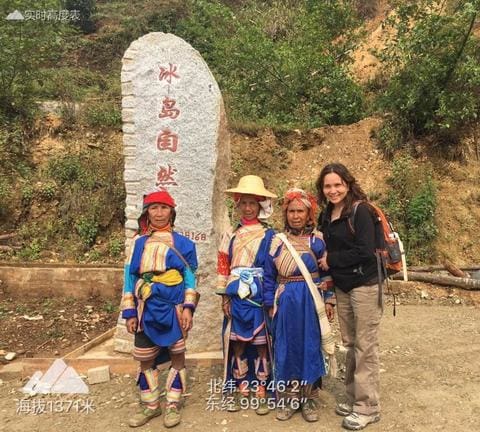
If you think about Keemun black tea for a moment (one of the most famous black teas in the world), I think you’ll begin to understand the choices that one has to make. Not many people realize this, but the entire county of Qimen and the neighboring regions produce Keemun. So, from where do you get this tea? Does it make any difference?
You may be surprised to learn that there are many inferior varieties of tea out there — deficient in cleanliness, aromatics, taste. In this case, some teas are marketed as Keemun, but when you prepare them, the signature Keemun fragrance is diminished or even completely absent. Someone then might wonder, “Why is this tea so special in the first place?” That’s unfortunate.
This is not a problem unique to tea. Authenticity is a problem all across the world, most notably in other industries like wines and olive oils. With Champagne, for example, authentic Champagne only comes from the Champagne region in France and must be produced and labeled, by law, in accordance with a very strict set of guidelines. And so if we wanted to know what makes Champagne special, what gives it its reputation, why would we settle for an inauthentic sparkling wine? Why think of tea any differently?
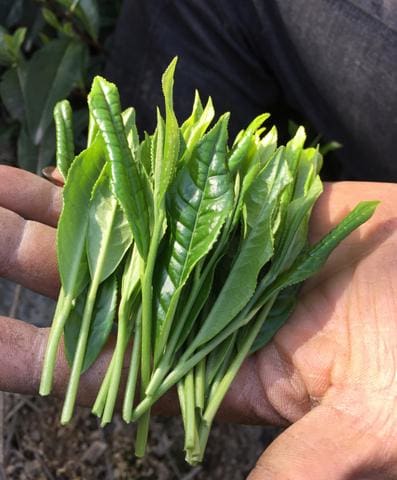
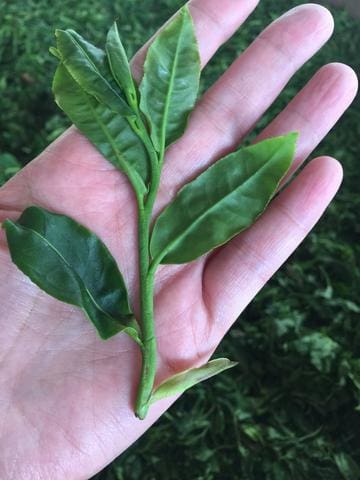
This is why I will visit the core-producing regions, the true, original areas of these teas. I believe that the signature characteristics that made these teas famous in the first place come from their unique terroir. After all, in the original area, the tea has a history here; it’s an area that has historically provided the best environment for it and has cultivated a strong tradition and skillset for it, sometimes even passed down through the same families over centuries of practice. In addition, I am willing to go further and higher, to the remote and high-altitude mountain tea farms that use sustainable farming practices.
Derek: You just mentioned terroir. This is a fascinating, complex topic, and I’m glad that you introduced it. When some people hear this term, they might be thinking that it’s just the soil (if it’s anything at all). Can you say a little more about terroir and why that makes such an important difference?
Victoria: Tea and coffee are treated like commodities to some extent — there’s a strong demand and a massive market for them. The only way to meet these demands is with inexpensive, mass-produced products, and when it comes to these inexpensive teas, their origin doesn’t really matter as long as they continue to satisfy the global demand from the average consumers. But for specialty drinks, things are a little different.
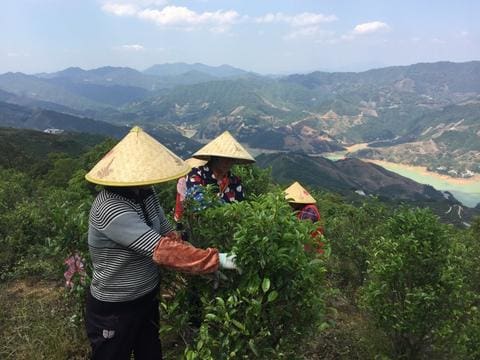
When it comes to coffee, for example, a seasoned coffee drinker can immediately taste the difference between a cup that comes from Indonesia and one produced in South Africa. The same is true of sommeliers and wine. Depending on the place of origin and method of production, these beverages will have distinct aromatics and textures, even if they are from the same cultivar. What is it that makes them so different from one another? It’s terroir.
Now, it’s true that soil affects terroir, but this isn’t the whole story. Soil everywhere has a unique mineral composition, and these minerals get absorbed by the tea as it grows, affecting the flavors. But beyond the soil, there’s also the climate and altitude, which can create very different growing environments. At higher altitudes, for example, you get a noticeably cleaner tea compared to the lower altitude and roadside teas, a difference you can taste. And again, depending on whether the tea bushes are facing the sun or growing in the shade, the same two teas will taste different. There’s an old Chinese saying about this:
橘生淮南则为橘,生于淮北则为枳,叶徒相似,其实味不同。所以然者何?水土异也。
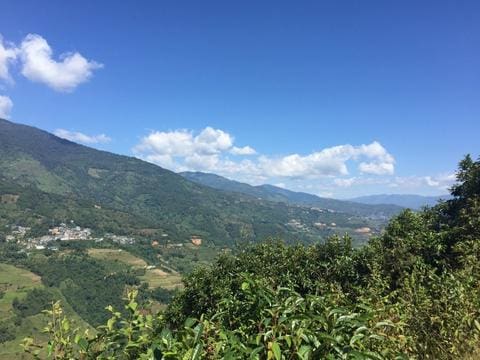
There’s also a hidden element that people may not think about, the skills of the person who crafts the tea. Again, this has a similarity to coffee where we can see how the same exact beans at the hands of two different roasters can yield very different cups. This element is even more pronounced when it comes to tea. The skills of the tea master can really affect the quality and taste.
All of this is terroir.
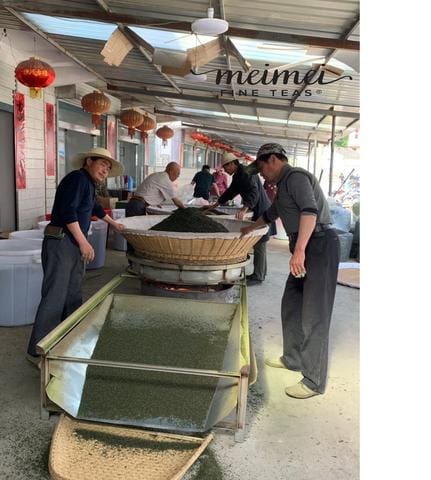
Derek: We’re nearing the end of our time together here, and so I want to take the opportunity to ask: what is the most important thing you've learned from your tea sourcing trips? In other words, if there was one thing that sourcing trips has taught you, one thing that you want tea drinkers to know, what would it be?
Victoria: I truly believe that terroir matters, and so we do our best to get the source right. We want our specialty teas to reflect the importance of terroir, the very essence of tea, so that one experiences the joy you can get out of a truly great cup of tea. Nowadays, you can find Anji Bai Cha green tea grown in some parts of China where it didn’t before, but I will only source Anji Bai Cha from Anji County in Zhejiang Province, not the Anji Bai Cha of Sichuan Province. Of course, you might say that I want the tangerine, not the orange, and that is your choice.
But apart from that, I’d also encourage tea drinkers to take just a little bit of time and thoughts when brewing their teas.
How we brew our tea really matters — the teaware you choose, the water, the brewing method, the tea-to-water ratio, the infusion time. Sometimes I’ll prepare tea for a guest and they’ll marvel at how great it tastes, but when they take it home, they’ll come back to me and ask why it doesn’t taste as good for them. That’s usually when we have to start discussing how they’re preparing the tea. Did you measure your leaves? Did you heat the water to the right temperature? How long did you infuse the leaves? What kind of water did you use? All of this is important to consider.
Ultimately, like wine, we drink this for health benefits and for pleasure. I personally don’t want tea from the average teabag because it doesn’t bring me the same amount of pleasure. Some people feel otherwise and drink it for convenience or for social reasons (which is fine), but for the rest, where a tea comes from and how it’s prepared makes an important difference. It’s the difference between enjoying a generic sparkling wine and enjoying authentic Champagne.
Derek: Thank you so much for your time. It's been a pleasure learning about your experiences, and I think it really helps tea drinkers appreciate what goes on behind our cups of tea.
- To read the part 1 of the interview, please click here.
